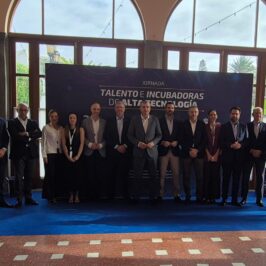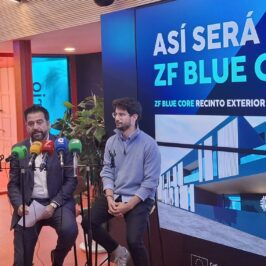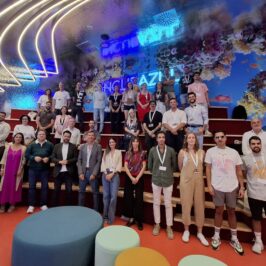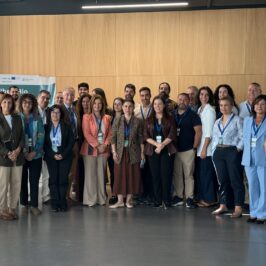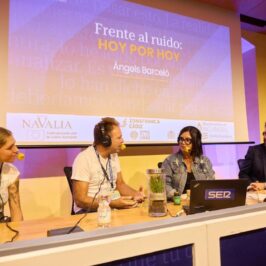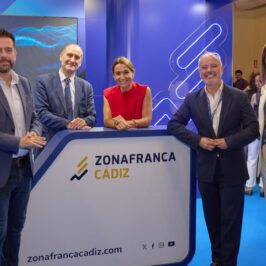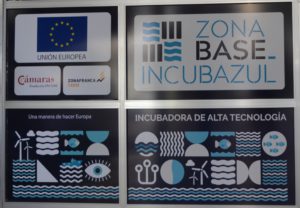
The blue economy incubator of the Free Zone subsidized by Feder Funds began operating in September in the Melkart Building while the Base Zone is being developed in the outer industrial estate, where it will be housed.
Four of the projects that will be incubated participated in the Ocean Hackathon 2020, including the winner for Cádiz, and the fifth is one of the winners of the AtrBT 2020 awards
Incubazul begins 2021 with five incubated projects after having received five applications in just three months since it was launched. The incubator, highly innovative and linked to the blue economy, came into operation in September in the facilities of the Melkart building and will continue to operate there until the development of the Base Zone, the innovation and technological expansion center on the plot, is completed. of the old Ibérica Aga in the outer polygon of the Free Trade Zone.
One of the first actions of Incubazul was the celebration of the Ocean Hackathon 2020, an international scientific event held in Cádiz and other maritime cities around the world at the beginning of October that brought together a large number of researchers on the economy in the interior facilities. blue.
Precisely four of the projects that have requested incubation so far participated in this scientific event and one of them, Carmen Morales with her team from the University of Cádiz, was the winner in our city with her I-Litter project, on the quantification of ocean trash through images.
Another project that has requested to be hosted in the incubator is the one directed by Elena Ortega, which merged with the previous one to compete in the Hackathon final. The project is framed within the theme of blue education and is intended to teach children about marine waste, its reuse and biodiversity.
Blue tourism is the theme of another project, directed by Esther Puertas, also from the University of Cádiz, who won second place in the Cádiz final. This is a mobile application to promote a new blue tourism model, more inclusive and sustainable.
Andrea Celeste Curcio, who won fourth place in the Cádiz Hackathon and works to detect plastic on the coasts and in the sea using drones, will also have incubation in the Free Trade Zone.
The fifth project that will receive incubation is called Trash Peak, directed by Javier Villanueva and Pablo Osuna, winner of one of this year's AtrBT awards and which aims to manufacture surfboards from coastal plastics using 3D printing and recycling technologies.
Users of the incubator, who will have a support ecosystem, will be eligible for services such as mentoring, exchange programs, advice for public and private financing, events or scientific forums, all for a maximum period of one year for new initiatives. that will be installed in coworking, while the more consolidated projects will occupy individual offices for a maximum period of 5 years.
Incubazul has an investment of 3,150,000 euros and is being developed subsidized with funds granted by the Pluriregional Operational Program of Spain Feder 2014-2020 “A way of making Europe” through the Incyde Foundation.
The Center for Innovation and Technological Expansion Base Zone that will house the incubator will be a concentration center for efficient economic activity adapted to the new economy. To this end, the Consortium has studied and learned about innovative initiatives along the same lines that other free zones are launching, such as the World Car Center in Vigo and the 3D printing incubator in Barcelona. among other actions.




